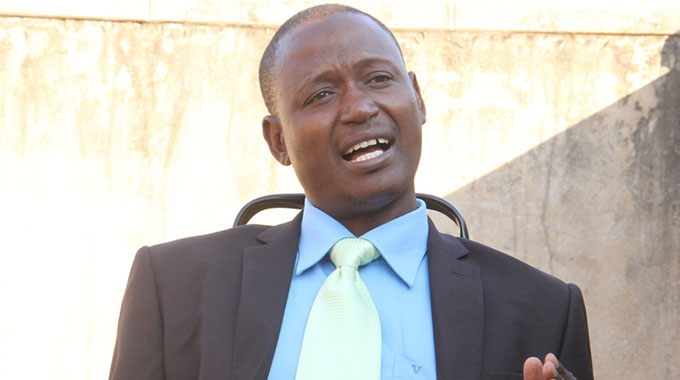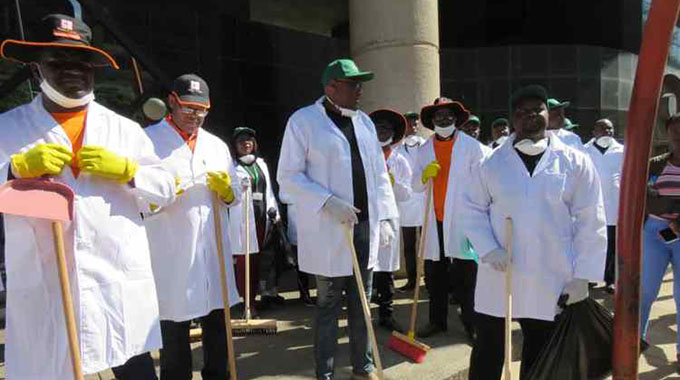Agric Ministry to lobby for climate change law

Nyore Madzianike Manicaland Bureau
THE Ministry of Lands, Agriculture, Water, Climate and Rural Resettlement wants to lobby Parliament for the enactment of a law that will allow the country to access global funding for awareness and education on climate change.
Deputy Minister Douglas Karoro said the legislation would also assist in the creation of a climate change fund. He said this on Saturday while officiating at a two-day climate change and ozone awareness workshop for parliamentarians in Nyanga.
“Given the economy-wide impact of climate change on agricultural production, hydro-electricity generation, water supply for human and industrial consumption, the health sector and infrastructure development, my ministry will soon be lobbying Parliament for the enactment of climate change legislation that will also facilitate the creation of a climate change fund,” he said.
“This will aid the Government’s efforts to attract international climate finance which is expected to reach US$100 billion per year by 2020. Legislation is also required to enable the ministry to collect data and communicate it to the United Nations Framework Convention on Climate Change (UNFCCC) in accordance with the Paris Agreement’s Enhanced Transparency Framework.”
Deputy Minister Karoro said his ministry would also request Parliament to ratify the Kigali Amendment to the Montreal Protocol on Substances that Deplete the Ozone Layer.
The Kigali Amendment to the Montreal Protocol was adopted at the 28th Meeting of Parties in 2016 in Rwanda, where the global community aimed at scaling down the production and use of hydro-fluorocarbons (HFCs) that also cause climate change.
Zimbabwe has not yet ratified the Kigali Amendment.
“Ratification will allow Zimbabwe to access resources under the Multilateral Fund Mechanism of the Montreal Protocol to be used to raise awareness amongst private sector players and conduct the necessary training,” said Deputy Minister Karoro.
“The resources will partly be for capacitating the relevant institutions such as Zimbabwe Revenue Authority (ZIMRA), Zimbabwe Republic Police (ZRP) and customs officials to identify products with high global warming potential.”









Comments